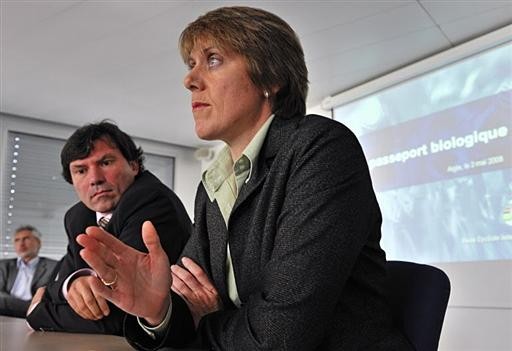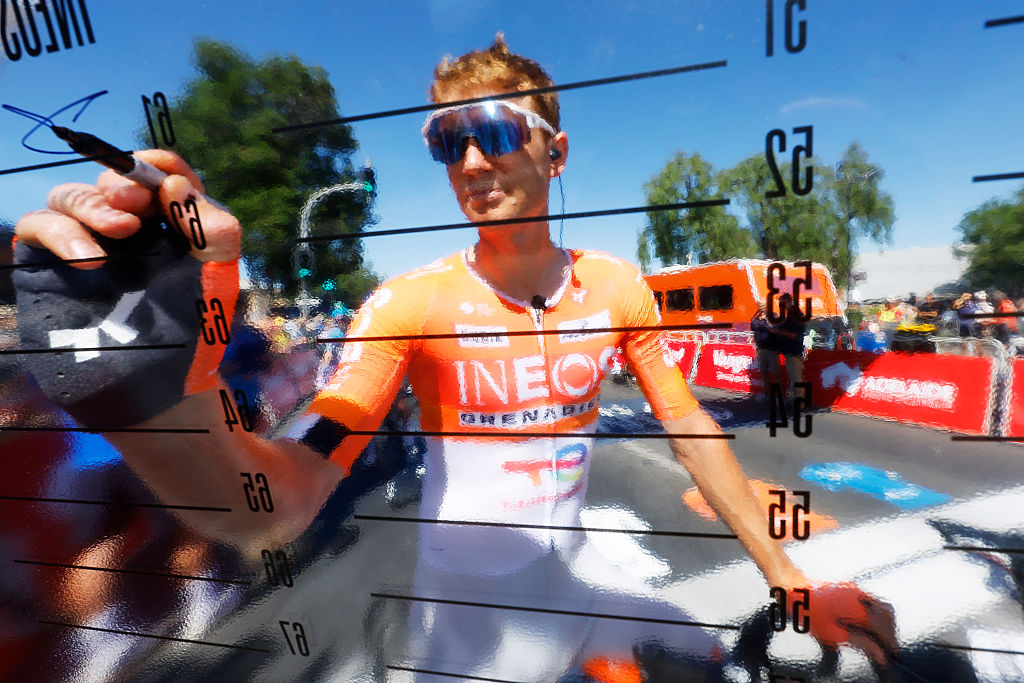UCI, AFLD running targeted testing at Tour
50 riders subjected to additional scrutiny even before Tour's start
The latest race content, interviews, features, reviews and expert buying guides, direct to your inbox!
You are now subscribed
Your newsletter sign-up was successful

When the UCI announced they were to work with the AFLD at this year’s Tour de France, a ripple of quiet applause went through cycling’s echelons. Yet despite this step and the implementation of the most sophisticated testing ever seen in the Tour, it is possible that micro-dosing of EPO could go undetected by the biological passport.
Anne Gripper, head of the UCI’s anti-doping programme was at the Tour until Sunday, collaborating with the AFLD in order to make sure that the competition testing in this year’s race went as smoothly as possible. Gripper also met with the IAF (International Athletics Federation) in their Monaco base to discuss the full implementation of the biological passport.
For Gripper and the UCI though, this year should see testing that’s far more comprehensive than in 2008, when six positive tests were uncovered during and after the race. Along with a ‘focussed’ testing programme, which the UCI ran during a five-week period before the race on a selected batch of fifty riders, cycling’s governing body will test riders during the Tour for a number of substances and blood manipulation.
“As well as the focussed pre-competition testing already completed we’ll be carrying out in-competition testing that we agreed with the AFLD,” she told Cyclingnews. “Those two elements together will make it as robust as possible.”
Gripper added that the testing procedures are far more intelligent than last year, as along with the normal eight post-competition urine tests, the UCI will combine biological passport testing with a quick turn-around of results. This is something that was lacking in last year’s race and allowed Bernhard Kohl and Stefan Schumacher to prosper all the way to Paris.
“There’s follow up testing and we’re using a range of different types of tests in the morning and in the evening. For example we’ll test riders for human growth hormone, homologous blood transfusion and CERA in the morning [there is no point doing this after the stage], and every rider had a biological passport test on Thursday in their hotels. Biological passport testing will also be conducted on several mornings during the race”
The UCI’s new fast-track testing means that the biological passport results were available for analysis the very next day, from which point they carried out a set of further tests with daily collaboration and communication with the AFLD.
The latest race content, interviews, features, reviews and expert buying guides, direct to your inbox!
“If it’s a positive test for CERA EPO or growth hormone our results management process means that we have a very fast procedure for suspending a rider almost immediately. However if it’s a test that suggests a biological profile looks suspicious, then the procedure takes longer. We need to monitor the profile and seek further analysis.”
However recent comments from one of UCI’s independent advisors have dampened expectations that the passport is fool-proof. “Riders can’t use the passport to help them dope but the clever riders might be able to avoid things being obvious. Things like micro doses of EPO are difficult for the passport to pick up. The positive side of this is that you don’t get much performance enhancement from this, and riders will have to drastically modify their doping behaviour. The passport does detect any form of blood manipulation, though.”
Daniel Benson was the Editor in Chief at Cyclingnews.com between 2008 and 2022. Based in the UK, he joined the Cyclingnews team in 2008 as the site's first UK-based Managing Editor. In that time, he reported on over a dozen editions of the Tour de France, several World Championships, the Tour Down Under, Spring Classics, and the London 2012 Olympic Games. With the help of the excellent editorial team, he ran the coverage on Cyclingnews and has interviewed leading figures in the sport including UCI Presidents and Tour de France winners.

